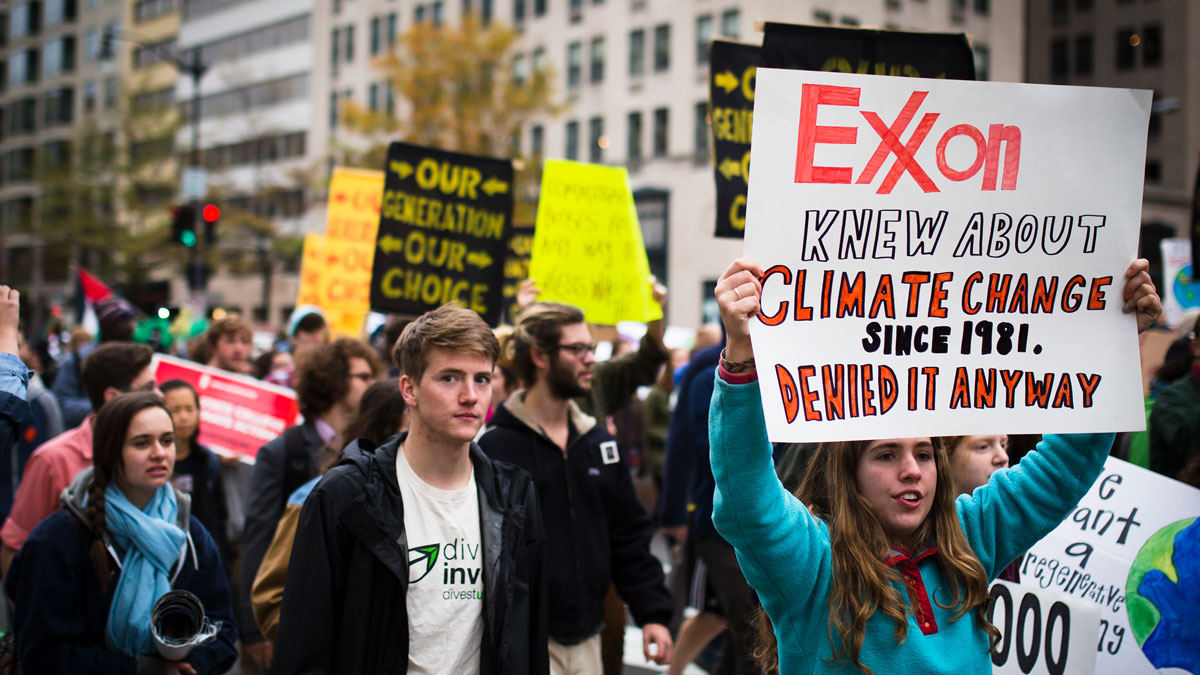

News & Analysis
September 15, 2025
This fall marks 10 years since the world first learned that Exxon knew as early as the 1970s that its fossil fuel business would help fuel a climate crisis — but purposefully deceived the public to block action and protect their profits. The so-called #ExxonKnew investigations and reports have since led to dozens of lawsuits, Congressional hearings, and scientific studies seeking to shine further light on Big Oil’s climate deception and hold the fossil fuel industry accountable.
The revelation that Exxon and other Big Oil companies knew better when they lied to the public about the harm of their products was made possible by teams of investigative reporters with Inside Climate News, the Los Angeles Times and Columbia Journalism School. Beginning in September 2015, those outlets published a series of bombshell stories revealing that Exxon’s own scientists warned executives as early as 1977 that the burning of fossil fuels was heating the planet, that this heating could lead to “potentially catastrophic events” (1982) and the world had “a time window of five to ten years before the need for hard decisions regarding changes in energy strategies might become critical” (1978). Instead of warning the public, Exxon and other oil giants internally decided to “emphasize the uncertainty in scientific conclusions” (1988), then executed a decades-long campaign of climate deception, while taking steps to protect their own infrastructure from rising seas and other climate harms they knew their core business would make worse.
In the decade following the first #ExxonKnew revelations, Exxon and other Big Oil companies have faced growing scrutiny and efforts to hold them accountable, including:
Just as Big Oil’s internal studies predicted, the past decade has seen a rapid intensification of climate-driven extreme weather events, including worsening hurricanes, floods, droughts, and wildfires. The United States is now spending close to a trillion dollars a year on damages linked to climate change — costs that are straining government budgets and increasing the cost of home insurance for Americans across the country.
Throughout fall 2025, CCI will be revisiting the original #ExxonKnew revelations from 2015, the progress toward accountability made over the last 10 years, and the ongoing fights to make sure Big Oil companies pay for the harms they knowingly caused.
Read some of the original 2015 “Exxon Knew” investigations below:
Inside Climate News, “Exxon: The Road Not Taken” — a nine-part investigation that was a finalist for the Pulitzer Prize for Public Service in 2016.
The Los Angeles Times and the Energy and Environmental Reporting Project at Columbia University’s Graduate School of Journalism: